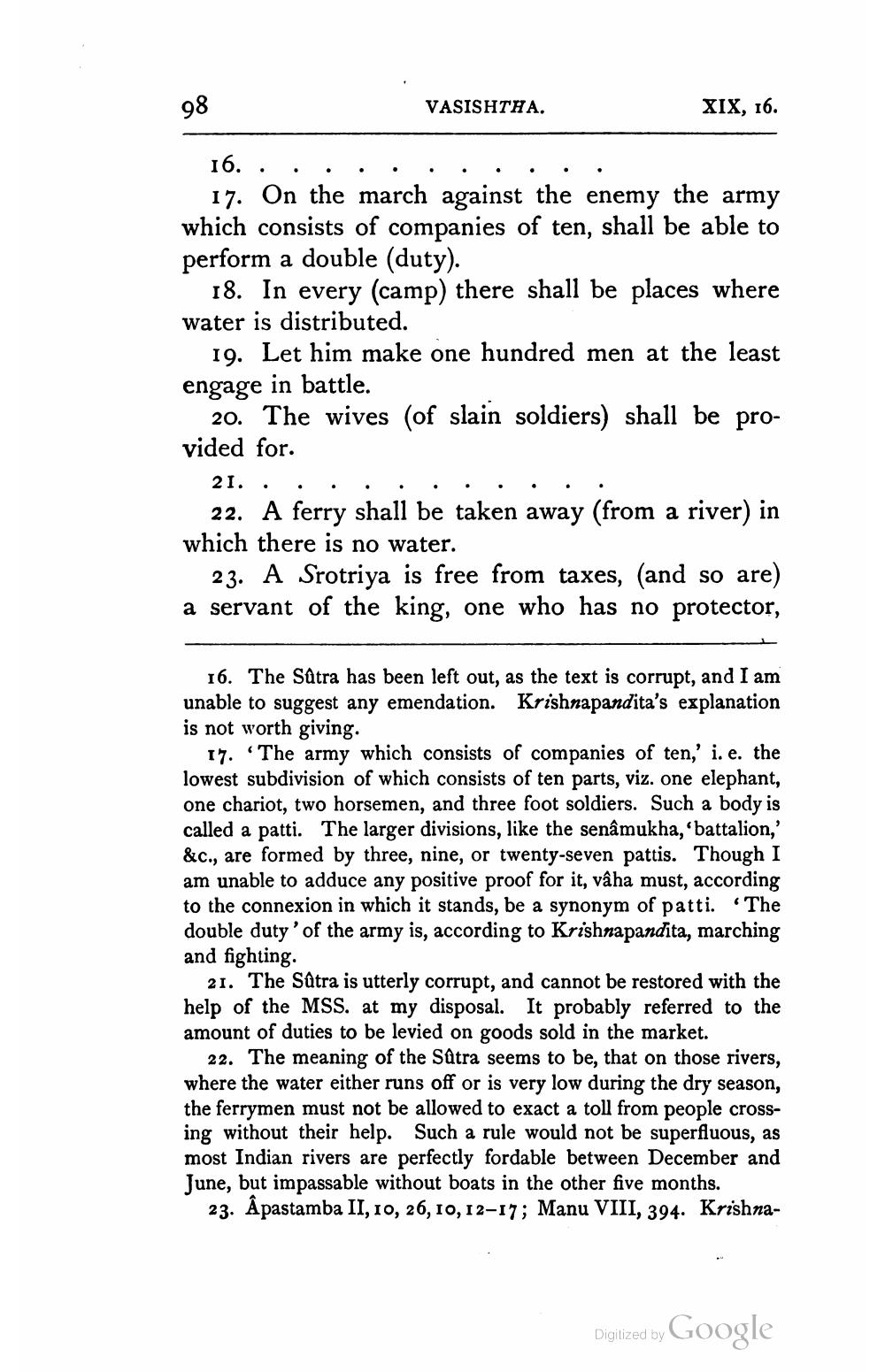________________
98
VASISHTHA.
XIX, 16.
16. . . . . . . . . . . .
17. On the march against the enemy the army which consists of companies of ten, shall be able to perform a double (duty).
18. In every (camp) there shall be places where water is distributed.
19. Let him make one hundred men at the least engage in battle.
20. The wives (of slain soldiers) shall be provided for.
21. . . . . . . . . . .
22. A ferry shall be taken away (from a river) in which there is no water.
23. A Srotriya is free from taxes, (and so are) a servant of the king, one who has no protector,
16. The Satra has been left out, as the text is corrupt, and I am unable to suggest any emendation. Krishnapandita's explanation is not worth giving.
17. The army which consists of companies of ten,' i.e. the lowest subdivision of which consists of ten parts, viz. one elephant, one chariot, two horsemen, and three foot soldiers. Such a body is called a patti. The larger divisions, like the senâmukha,“battalion,' &c., are formed by three, nine, or twenty-seven pattis. Though I am unable to adduce any positive proof for it, vâha must, according to the connexion in which it stands, be a synonym of patti. "The double duty of the army is, according to Krishnapandita, marching and fighting.
21. The Sûtra is utterly corrupt, and cannot be restored with the help of the MSS. at my disposal. It probably referred to the amount of duties to be levied on goods sold in the market.
22. The meaning of the Satra seems to be, that on those rivers, where the water either runs off or is very low during the dry season, the ferrymen must not be allowed to exact a toll from people crossing without their help. Such a rule would not be superfluous, as most Indian rivers are perfectly fordable between December and June, but impassable without boats in the other five months.
23. Åpastamba II, 10, 26, 10, 12-17; Manu VIII, 394. Krishna
Digitized by Google




